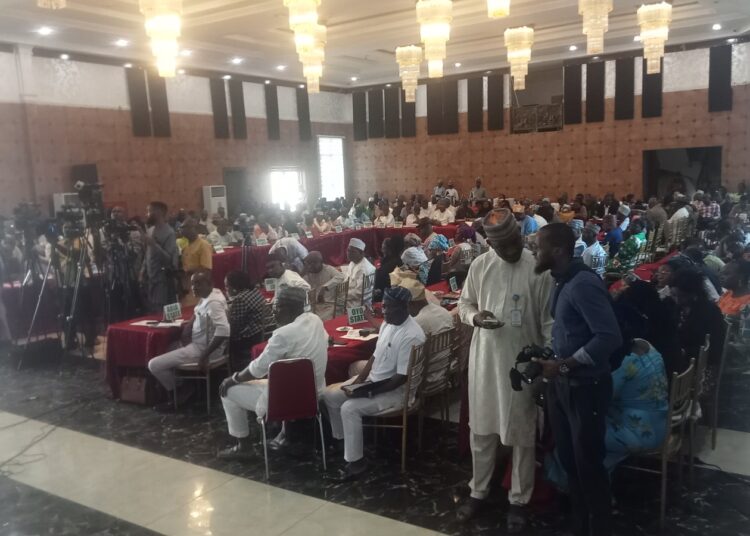The Minister of Education, Dr. Tunji Alausa has proposed a shift to a 12-year basic education model in Nigeria.
Dr Alausa made the call on Thursday at the 2025 Extraordinary National Council of Education meeting which is the highest education policymaking body in Nigeria, currently holding in Abuja.
LEADERSHIP reports that Nigeria currently operates the 9-3-4 system, which consists of nine years of basic education, three years of senior secondary education, and four years of tertiary education.
However, Alausa pointed out that some of the issues influencing the convening of the extraordinary National Council of Education meeting include the introduction of a 12-year basic education system in Nigeria’s education framework and the approval of a national policy on bullying, among others.
“It is important to acknowledge that while the 9-3-4 system of education has its merits, it also has drawbacks, such as the need for students to work in order to further their education,” Alausa explained.
“It is therefore prudent to transition from the 9-3-4 to the 12-4 system of education. By doing so, Nigeria will align with global standards in preparing students for better tertiary education.”
“A 12-year basic education model will ensure a continuous, uninterrupted curriculum, promoting better standardisation and fostering quality assurance in the education system.
“It will also guarantee that students receive a more comprehensive and continuous learning experience, improve educational outcomes, and contribute to a more educated populace that drives Nigeria’s economic development.
“A second key agenda to be discussed today at the extraordinary meeting is the conversion of federal science and technical colleges into federal technical colleges,” the Minister stated.
He also mentioned that the Council would be discussing the 16-year policy on admission into tertiary institutions, which is to be incorporated into the national policy on education.
“I am sure many of you have heard about the challenges we face as a nation with talented, bright students being disenfranchised from pursuing tertiary education. In any society, it is crucial to standardise the education of exceptionally gifted students who are highly functional.
“We are now preventing these students, after finishing secondary education at the age of 16, from attending university until they are 18. This delays their development and harms their futures. These students are capable and brave. If we leave them idle, we risk exacerbating mental health issues,” he said.
Regarding the conversion of federal science and technical colleges to federal technical colleges, the minister emphasised that technical education, which imparts practical and applied skills alongside basic scientific knowledge, is crucial for addressing the current skills gap in the labour market.
“The provision of technical education allows a nation’s human and natural resources to be harnessed more effectively. Therefore, technical education contributes significantly to national development, driving cultural and industrial progress,” Alausa noted.
The ongoing National Education Council meeting as of the time of filing this report, is expected to issue a communique detailing the key decisions made.





